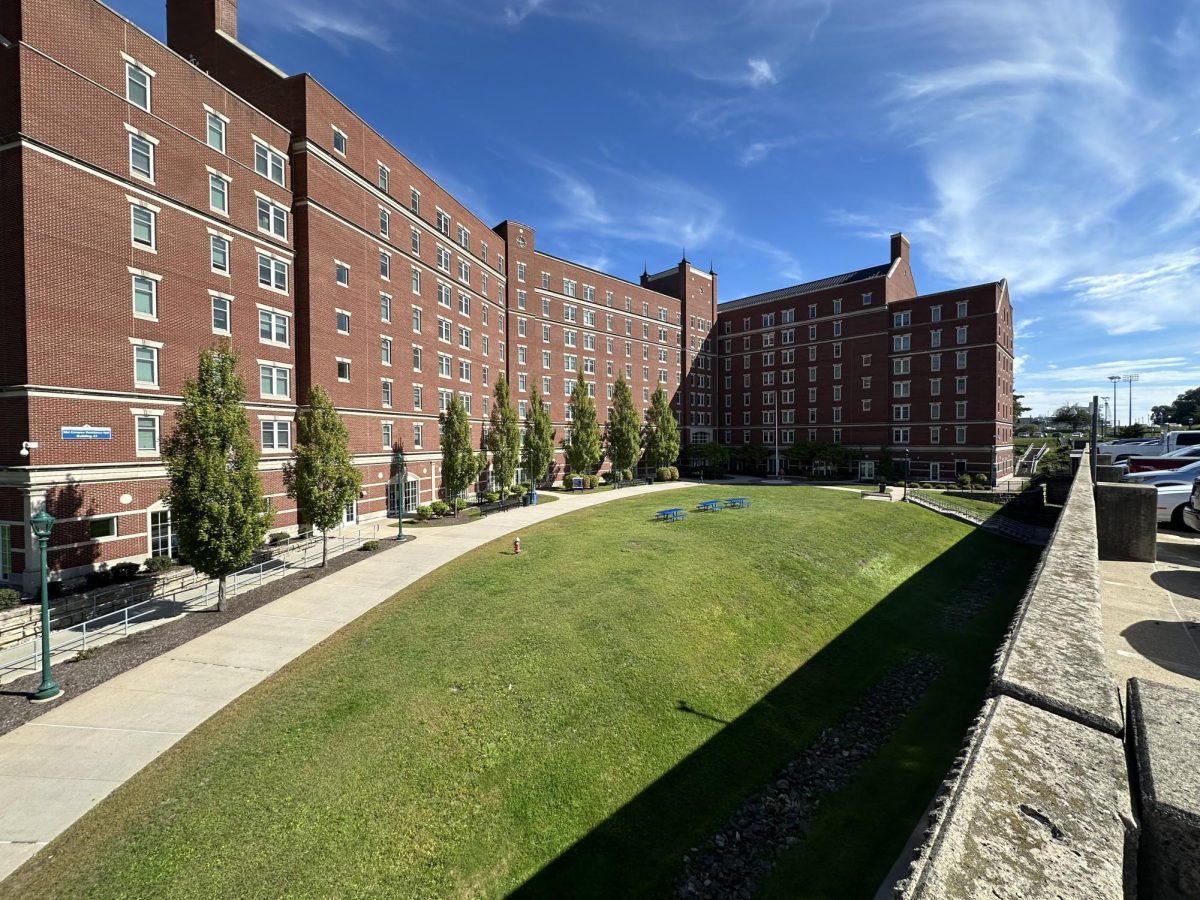First Town and Gown Meeting of Semester Updates University, Community on Neighborhood Relations
By Sara Berry
The number and size of off-campus house parties in the Central Connecticut State University neighborhood have decreased ever since the New Britain Police Department began paying regular visits to “party houses.”
Sgt. Mike Baden of the New Britain Police Department says that there have been 261 arrests so far this school year, which is down slightly from last year. He also noted that since the visits to hot spots started, parties have become smaller and more manageable. Some parties in the area used to have 70 or 80 people in a house at a time, but most of the parties that police have been called to lately have gone down in size to around 10 to 15 people, Baden said.
Of particular interest to the Town and Gown Task Force at the semester’s first meeting was CCSU students and their behavior off campus, especially in relation to parties. The task force, who seeks input from residents, students and other outside sources, are trying to address some of the concerns that have risen from complaints made by residents of neighborhoods in the CCSU area.
Jonathan Pohl, CCSU’s alcohol and drug education coordinator, gave an overview of some of the strategies that the committee is looking to implement. A newer initiative includes New Britain police paying visits to houses based on complaints having been made about that location. Five buildings were visited on Jan. 25 and four were visited on Feb. 4. During visits, police provide the residents, often CCSU students, with information on having safe and responsible parties, as well as the consequences to having police called to address issues stemming from a party. Residents also receive an informational brochure called “House Parties for Smarties,” put together by the Office of Alcohol and Drug Education and the Counseling and Wellness Center. The brochures contain information on how to have respectful parties and what the consequences can be for parties that are out of hand.
Students who receive citations involving parties usually do so for drug and alcohol issues. Once a student receives an infraction, he or she receives a referral to the Wellness Program Administrator and is asked to go to a session of the ‘Choices’ program. The ‘Choices’ program is intended to “educate and disseminate information,” said Pohl. Students who are involved in drug and alcohol related issues also have letters sent home to their parents.
Another possibility that the Town and Gown Taskforce is considering is placing a registry of places where arrests have taken place on the CCSU Police Department’s website. Names, addresses and charges of arrested individuals is public information and may be acquired from the New Britain Police Department. An online listing would make the information more available to the residents of the neighborhoods near CCSU.
Pohl also stressed the importance of perceptions, both of students and members of the New Britain community. The CORE survey, administered every two years, asks students anonymously about their drug and alcohol related behaviors. The 2010 survey polled 892 students and revealed that 84.3 percent of CCSU students have never gotten into trouble with University authorities and 74.4 percent have never gotten a bad test score related to partying the night before. Pohl notes that these numbers are much higher than people think. The inaccurate perceptions of college students can lead to hostility from the community, and may influence the drinking habits of new students. Studies have indicated that students who think their peers drink heavily are going to drink heavily themselves where they might not otherwise.
The next open meeting is scheduled for April 11 in the Connecticut Room of Memorial Hall. Two closed meetings will also be held, one in March and one in May.

